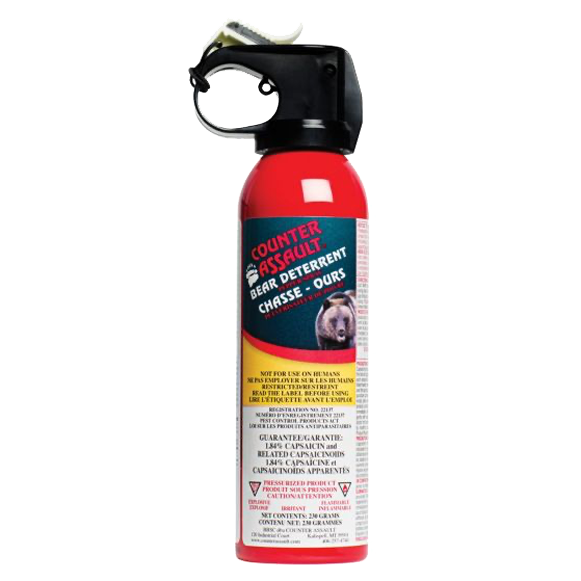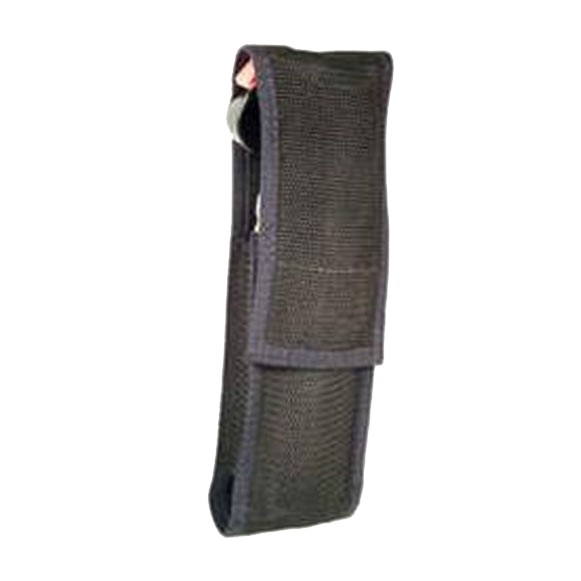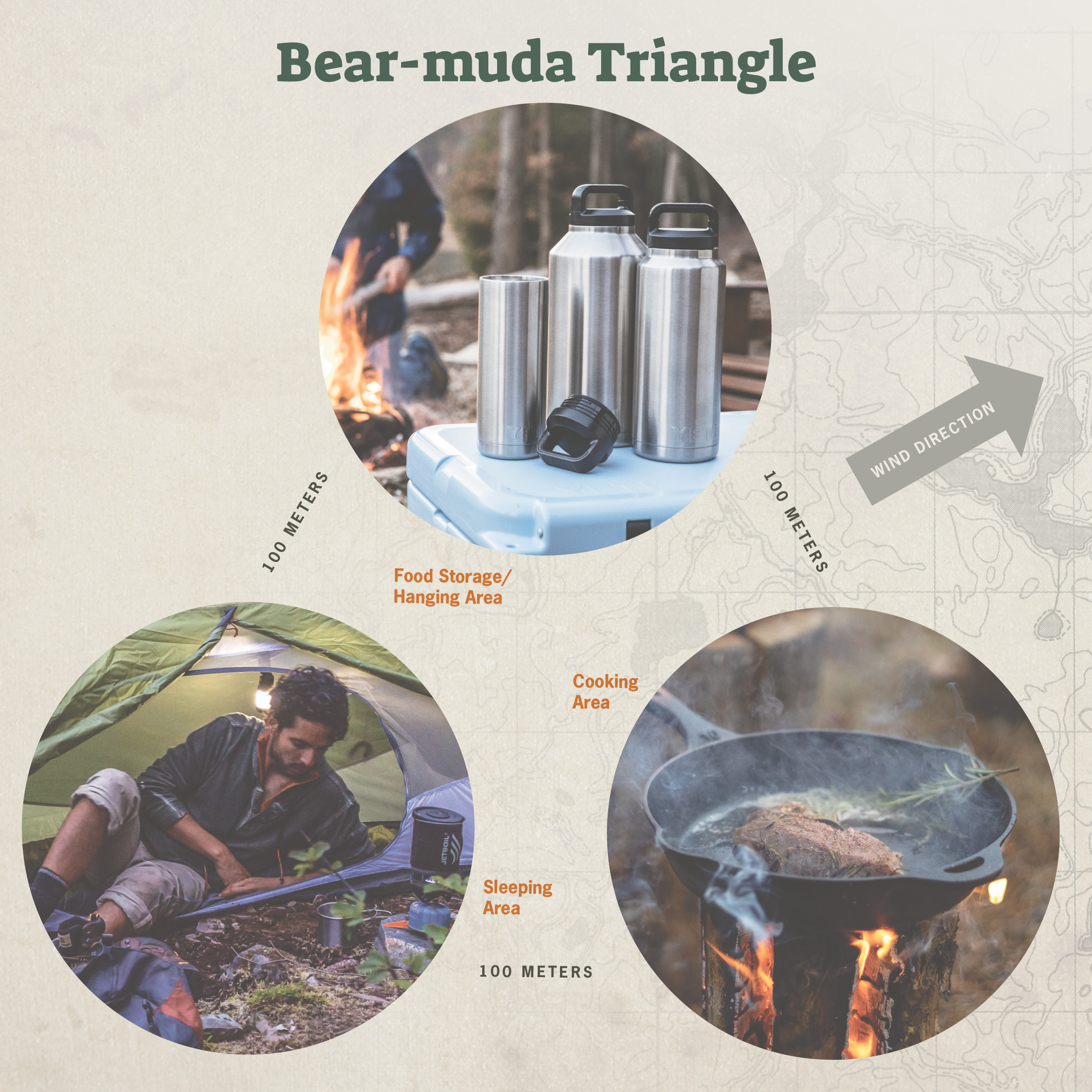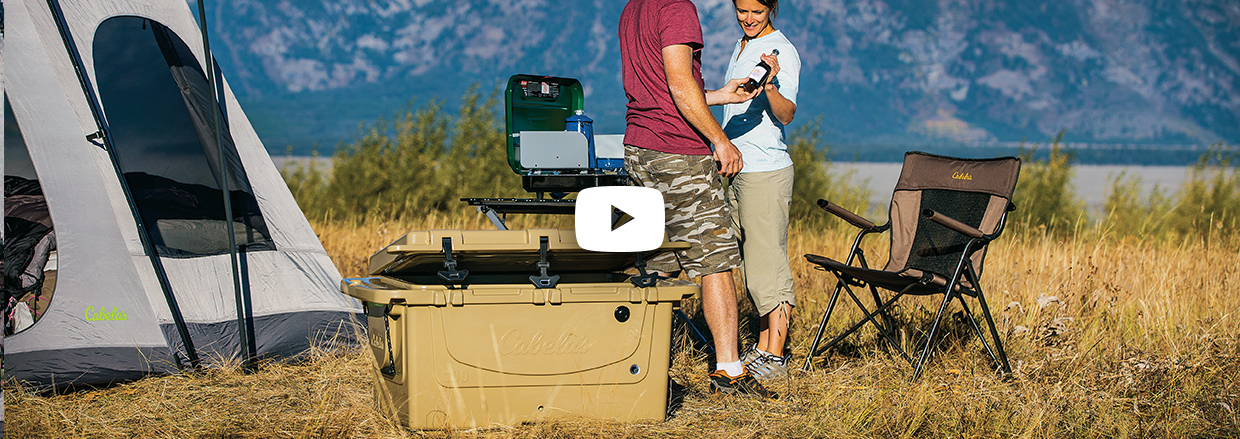BEAR SAFETY

Bears may appear cute and cuddly, but they can pose a real danger to humans while enjoying the outdoors. There are several things you can do to minimize your risk of encountering a bear, including bear-proofing your campsite. Knowing what to do in case you come across a bear will help you save your life.
Tips for Safe Travel in Bear Country
Parks Canada advises the best approach to avoid an encounter with a bear using these tips:
- Make noise
- Watch for fresh bear signs (tracks, droppings, diggings, etc.)
- Keep your dog on leash at all times
- Travel in large groups
- Use marked paths and trails
- Travel during daylight
- Stay away from and report sighting of large dead animals
- Never leave fish offal on lake shores
- Dispose of garbage properly
What To Do When a Bear Approaches
Bears in national parks are wild, unpredictable, and dangerous. While there is no single strategy that can work in all situations, knowing basic guidelines will help you.
When a bear starts to approach you, consider if its being defensive or non-defensive.
Defensive
- Stay calm, don’t run, and try not to appear as a threat.
- Talk calmy. Establish that you are not a prey animal.
- If the bear advances, move slowly away.
- If it comes closer, stand your ground, keep your bag on, continue talking, and use bear spray.
Non-defensive
- Move out of the bear’s path and let it pass.
- Talk in a firm voice.
- If the bear follows you, stop and stand your ground, but don’t run.
- Intimidate the bear by shouting or acting aggressively.
- If it gets closer, use your bear spray.
Bear Attacks
While bear attacks are rare, knowing how to handle the situation is mighty helpful.
Brown/Grizzly Bears
If a brown or grizzly bear attack you, keep your backpack on and play dead. Lay flat on your stomach with your hands behind your neck. Spread your legs to make it hard for the bear to turn your over. Don’t move until the bear leaves. In situations such as these, fighting usually makes it worse.
If the attack persists, fight back vigorously using whatever you have at hand to hit its face.
Black Bears
With black bears, don’t play dead. Try to escape to a secure location and if that’s not possible, try to fight back using any object available in your hand. Concentrate your blows and kicks on the bear’s muzzle and face.
If the bear attacks you in your tent or stalks you and then attack, don’t play dead. Fight back as the bear is looking for food and thinks you are a prey animal.
BEAR SAFETY ACCESSORIES

Bear Spray
What it is: Aerosol can containing capsaicin, a chemical found in chili peppers.
Why use it: In the event of an encounter, is effective in repelling bears. Learn more about bear spray with Parks Canada.

Bear Spray Holders
What it is: Carrying device for your bear spray.
Why use it: You will want your bear spray easily accessible, not at the bottom of your pack. Holsters allow you to carry bear spray where you can easily access it in the event of a close encounter with a bear.
Learn more about what to do if you encounter a bear, how to handle an attack, and how you can help protect bears through Parks Canada
How to Keep Bears Away from Your Campsite
Turn your campsite bear-proof with these pro-tips.

- Hang a Bear Bag
Bears have very sensitive noses. In fact, their sense of smell is a hundred times greater than humans. Leaving food or garbage around your campsite is practically asking for unwanted visitors. Prevent bears from getting into your food stores by hanging them in a bear bag. - Follow the Bear-Muda Triangle
This pun might make you laugh, but bear safety is no joke. To stay safe, set up your camping areas in a triangle shape: place your tent at one point, your cooking and eating area at another, and your food storage area (or bear hang) at the third point. Keep about 100 meters between each corder. This method works best at camp sites with enough space. If you can position your tent upwind as shown in the graphic, it is helpful. - Do the Dishes
Don’t wait to do the dishes after cooking up a forest feast. The smell of grease on pans and food stuck to plates is an invitation to bears in the area to come take care of the leftovers. Once you are finished eating, get scrubbing. Be sure to dispose of your dishwater far away and downwind from your tent site. - Go Odourless
Don’t leave anything with an odour around your campsite. This includes food, garbage, stinky clothing or anything that a bear might catch a whiff of on the wind. Pack items with a strong smell in air-tight containers and store them away. All garbage should be disposed of away from the site, or packed away in your bear bag.

- Cook Wisely
Depending on where you are camping, you may want to limit certain types of food that are more likely to attract bears. The smell of sizzling bacon or fish, for example, is sure to hit the nose of a hungry bear miles away. That’s not to say you shouldn’t cook up your favourites around the campfire, just be mindful and bear-aware.
Tools to Keep Your Campsite Bear Safe
A Bear-Resistant Cooler for Your Campsite
The Cabela’s® Polar Cap Equalizer Cooler is available in 5 sizes ranging from 25-quart to 100-quart. We have tough-tested this cooler against the toughest of conditions, including giving it to a bear. No really, watch this video:

